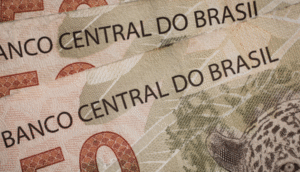$RTSI $ERUS $RUB
#Russia #Trump #Putin #Ukraine #Ceasefire #StockMarket #OilPrices #Geopolitics #Investing #War #Economy #Forex
U.S. President Donald Trump and Russian President Vladimir Putin are scheduled to hold a crucial discussion regarding a potential ceasefire in Ukraine, with financial markets closely monitoring the outcome. The proposed 30-day ceasefire could temporarily halt hostilities, impacting global energy markets, defense sector stocks, and currencies involved in the geopolitical conflict. Investors will assess any signals that may influence economic sanctions, commodity exports, and overall financial stability in the region. Given Russia’s dominant position in the energy sector, any progress toward de-escalation may lead to lower oil prices, influencing major energy companies and broader market sentiment.
A temporary truce could provide some relief to Ukrainian and Russian markets, as investors weigh the implications of reduced military conflict. Russian stocks, including the RTS Index ($RTSI), have faced significant volatility amid geopolitical tensions. Western sanctions have also contributed to currency fluctuations, with the Russian ruble ($RUB) being particularly sensitive to developments in the war. If the ceasefire proposal gains traction, Russian equities could see a short-term rebound, while Ukraine may witness a stabilization in its financial markets. Meanwhile, Western defense stocks, which have surged due to increased military spending, could experience near-term pressure if peace prospects strengthen.
Oil and natural gas prices remain highly susceptible to geopolitical developments involving Russia, one of the world’s largest energy suppliers. If the ceasefire discussions signal potential de-escalation, global crude prices may face downward pressure, affecting major oil-producing firms and energy-dependent economies. European markets, which have faced supply disruptions due to the reliance on Russian exports, will be closely watching whether this ceasefire could lead to broader negotiations affecting energy trade. Additionally, forex markets may see movements in the U.S. dollar, euro, and ruble as investors adjust their positions based on geopolitical risks and potential shifts in interest rate expectations.
The broader financial markets will also factor in the potential long-term impact of diplomatic engagements between the U.S. and Russia. While a temporary ceasefire may offer short-term optimism, investors remain cautious about the sustainability of de-escalation efforts and the possibility of renewed hostilities. Equity markets could experience volatility as traders react to new developments, while geopolitical risk premiums may shift in commodities and currency markets. As Trump and Putin engage in discussions, market participants will be analyzing not just the ceasefire’s feasibility but also its potential to shape future diplomatic and economic interactions between Russia, Ukraine, and the broader global economy.











Comments are closed.